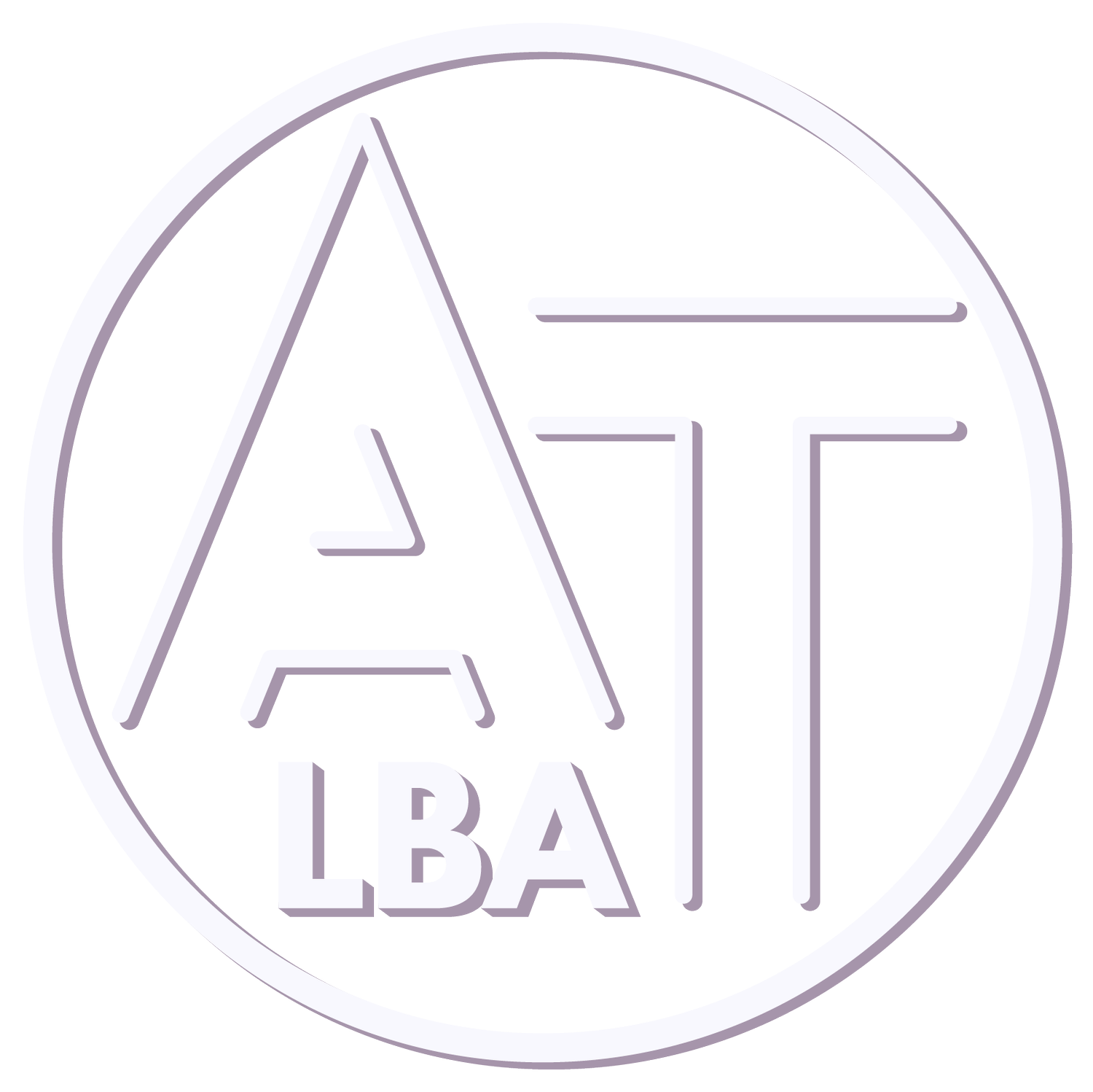
Frequently Asked Questions
We know you likely have a lot of questions, so here are answers to some of the common ones.
Questions are divided into the following categories:
General
Who will be working with my child?
IABA services may be provided by a Board Certified Behavior Analyst (BCBA), a Board Certified assistant Behavior Analyst (BCaBA), a Registered Behavior Technician (RBT) or a provider on path to attaining one of the above certifications while under supervision of a BCBA. All above certifications are provided by the Behavior Analytic Certification Board (BACB) [https://www.bacb.com]. Supervision of your child’s program may be provided by a BCBA or a BCaBA.
All providers at AT-LBA are licensed or qualified to be certified by the New York State Office of the Professions [www.op.nysed.gov/prof/aba] as a Licensed Behavior Analyst (LBA) or a Certified Behavior Analyst Assistant (CBAA). Providers are expected to behave professionally and maintain boundaries with family members. We ask families to do the same.
What is a BCBA?
The Board Certified Behavior Analyst (BCBA) is an international credential that is maintained by The Behavior Analysis Certification Board. BCBAs are required to complete the approved coursework given by an accredited college or university, provide a specified number of Applied Behavior Analysis hours, be supervised for a specified number of those hours by a BCBA and pass an exam. They are also required to complete a specified number of continuing education units, every two years, to maintain their certification.
What type of training do our RBTs attend?
All of our newly hired RBTs attend a Clinician Informing Session where they are trained on our Policies and Procedures and complete required paperwork. They are also required to complete a 40-hour training on Applied Behavior Analysis led by our Clinical Director. Our RBTs practice under the close, ongoing supervision of a supervising BCBA.
How do RBTs and BCBAs work together?
A supervising BCBA completes the initial and ongoing assessment, develops a treatment plan and program, reviews program goals, analyzes the program data, and provides educational and behavioral interventions for an RBT to implement. The designated supervising BCBA is ultimately responsible for the work performed by the RBT. All RBTs are required to be supervised by a BCBA for at least 1 hour of every 10 hours of ABA services the RBT provides.
What is your role as the parent/caregiver?
You have a very important role in your child's learning process, which starts with the assessment and lasts through the full course of treatment. This includes providing information about your child, approving goals and objectives, and working with the programs and behavior intervention plans that the supervising BCBA will develop. The supervising BCBA will determine the frequency, duration and location of the services based on your child’s assessment, their availability and staff availability. You will be expected to be home or arrange for another caregiver to be there if we provide services in your home. We will also want you to participate in weekly family training sessions and monthly team meetings to ensure consistency.
Treatment
How soon can you see my child and how long does it take to get approved for services?
First, we'll collect your insurance details and some information about your child so we can verify coverage. You may have to give your insurance provider verbal permission to allow us to speak with them on your behalf. Only after we've verified coverage, we'll prepare a team to begin working with your child and a BCBA will schedule an assessment. While every insurance carrier process varies, we will send in the forms required to get authorization for ongoing treatment while we begin working with your child.
What is an Assessment?
The BCBA will conduct a medical history and family interview with the parent/caregiver to gain a general understanding of your child’s strengths, continuing needs and family concerns. Based on this initial interview, they will choose an appropriate assessment tool(s) to gain a fuller picture of the situation including current environmental factors that may contribute to your child’s success. This information will allow the supervising BCBA to create an individualized treatment plan and ABA program for your child.
What is a Treatment Plan?
The Supervising BCBA assigned to your child will create a treatment plan and a corresponding ABA program that is customized to meet your child’s needs. The treatment plan is a summary report of your child’s assessment results, and identifies goals and objectives that will be included in your child’s ABA program.
The BCBA will create a program book or file for your child’s ABA program. This program will include acquisition programs, Behavior Intervention Plans (BIPs), data sheets and graphs. During the session, the RBT will record data manually. The supervising BCBA will have access to the data and graphs and will give you access to the graphs as well.
All ABA program decisions are data based. Programs will be continued, altered or retired based on regular quantitative analysis of your child’s response by your supervising BCBA. Your child’s treatment plan will be updated every 6-months to reflect progress on previously established goals and add new goals. Your child’s program may be altered as needed during the 6-month interval between treatment plan updates
How will I know if my child is making progress?
Data on the goals and objectives of your child’s treatment plan will be recorded by your RBT and available to you at any time. Your supervising BCBA can work with you during parent training or team meetings to analyze your child's data and graphs.
How are sessions documented?
The RBT fill out a program checklist that reports on the goals and objectives that are worked on during each session. Collected data will reveal the amount of progress or lack of progress that is made towards goals and objectives. Data will be entered into the program book or file via individual data collection protocols for each program. Anecdotal session notes, describing details not seen through data collection, may also be included in your child’s program book/file. In addition, the parent/caregiver will be asked to sign your child’s monthly time log after each session, so please make sure dates and times are correct.
During supervision, the BCBA will use a checklist to evaluate the performance of the RBT to ensure competency of ABA methods and help guide future sessions. The supervising BCBA will also document ABA treatment planning which may include: reviewing assessments, creating or editing treatment plan goals and objectives; creating or editing data collection program; reviewing program data; creating or sourcing materials; sending emails; making related phone calls; and reviewing the RBT’s session notes.
How does Family Training work?
An important part of your child's treatment plan, family training may include: reviewing the goals and objectives; assessing progress and continuing need; evaluating ABA programs; discussing any ABC data; identifying antecedents, behaviors, consequences and functions of behaviors; and behavior skills training of protocols developed for caregivers. A Family Training Form will include the focus of each session and any homework for the attending family member(s).
What if my child engages in inappropriate physical behaviors?
Our providers are instructed to never engage in inappropriate physical or verbal conduct with your child. If the learner engages in inappropriate physical behaviors, the parent/caregiver should intervene immediately if a Behavior Intervention Plan (BIP) is not in place. In these cases, RBTs should contact their BCBA Supervisors immediately so that a BIP can be developed and added to the treatment plan.
Do the providers work on toileting?
Providers will only work on toileting if it is a goal on the treatment plan. If it is, a detailed program will be developed and shared with all providers to ensure consistency. Toileting programs require that the family member/caregiver takes the child to the bathroom so the provider can act as a facilitator. All accidents and diaper changing should be taken care of by the parent/caregiver.
Confidentiality
How do I know that my family’s personally identifiable information remains private?
Allgood & Tehrani LBA adheres to the confidentiality guidelines set forth by the Health Insurance Portability and Accountability Act (HIPAA). All employees have undergone HIPAA training and are expected to follow HIPAA’s security guidelines.
How do I know that my information sent via email remains private?
All electronic transfer of information is sent using a HIPAA secure email service for all emails. All communication regarding your child will take place via our therapist's at-lba.com email address and all documentation will be kept on a HIPAA secure drive.
Financial Responsibility
Are ABA services covered by insurance?
Insurance providers only currently cover ABA services if there is an Autism Spectrum Disorder (ASD) diagnosis . We're also restricted by New York State law to only use ABA therapy to treat those with ASD or a related disorder. We will need to have a prescription for ABA services on file for any ABA services we provide.
What is my insurers responsibility for payment of services?
ABA coverage depends on your health insurance benefits. If ABA is covered and services are approved, we’ll submit claims to your insurance carrier and accept payment for services from them.
What is my responsibility for payment of services?
Once payment and an explanation of benefits (EOB) is received from your insurance carrier, we’ll create an invoice with the remaining balance you owe for your child’s services. You’re required to pay any deductible or co-insurance amounts applied to your insurance plan. If you don’t have out-of-network coverage or ABA benefits, you’ll be responsible for the entire fee for services.
